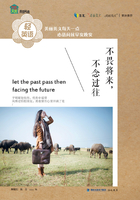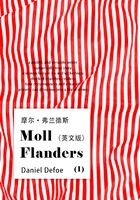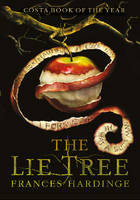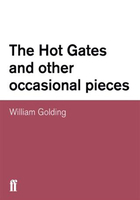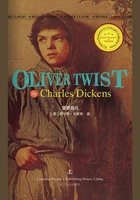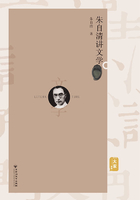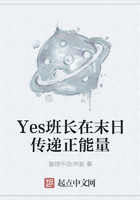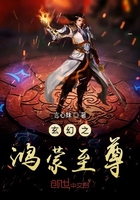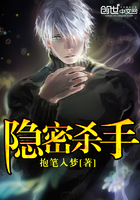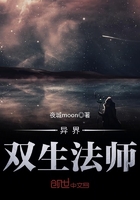The Cast Iron was a club on the corner of Clarendon and Appleton Streets, too close to the South End to be high-class but too close to the theater district to be disreputable. The current owner, a Mr. John Dervish, enjoyed skirting the line between the two. The building stood proud and alone, with only empty storefronts for neighbors and an abandoned bakery at its rear. A garish red door led into a dim corridor lined with mirrors. The heavy wooden door at the other end opened into the club proper, which boasted a long bar and tables of all shapes and sizes scattered around the room.
When Corinne and Ada walked in, arm in arm, just before seven, business was gearing up for the evening. There were only a few patrons scattered among the tables, nursing drinks and swaying to the sinuous melody of a lone pianist onstage. Ada reassured herself that her coat was buttoned over her Haversham-issued smock, just in case.
"Heya, kiddos," said the bartender, glancing up from the glass he was drying. He was tall and lean, with salty hair and cheeks covered in grizzled stubble.
"Heya back, Danny," said Corinne, tossing the car key onto the bar. "Be an absolute peach and get Johnny's car back to his garage?"
Danny looked down at the key, still polishing the glass with practiced flicks of his wrist. "I look like a chauffeur to you, Wells?"
Ada leaned across the bar and gave him a quick peck on the cheek. "I'll get you a cap, and you'll look mighty fine," she told him.
Danny raised an eyebrow, with the look of a man determined not to be moved. After a few seconds his face broke into a grin, revealing two gold teeth. "Ada Navarra, you incorrigible minx."
"Five syllables, Danny? Where'd you learn that one?" Corinne asked, stretching over the counter beside Ada to nab a bottle of gin.
"Pain-in-the-ass girl I know," he said. "Steals my alcohol and has apparently decided to take up nursing. By the way, that bottle's going on your tab, not mine. If those teetotalers get their way, I'm going to need every penny for my early retirement."
"America is the land of liberty, Danny dearest," Corinne said. "She won't stand for Prohibition, mark my words."
Danny snorted and shook his head. "So you two dolls ever gonna tell me why the Cast Iron's best musician mysteriously vanished for two weeks and now you're both showing up looking like a couple of pawn shop mannequins?"
"Probably not," said Corinne.
"Figured."
Danny set down the glass on the worn wood of the counter and pocketed the key. Corinne headed toward the back, hugging the gin bottle. Ada reached over to pluck it from her arms and, ignoring Corinne's indignant protests, handed it back to Danny.
"Thanks, Ada," Danny said. "Give your ma my regards."
"Will do, Danny."
Ada saluted the bartender and tugged a still-protesting Corinne through the doorway at the other end of the hall. The narrow stairs went down half a level to the storage room, which was stacked with crates of liquor, boxes of dry goods, and anything else that had been shoved there and forgotten. That included Gordon Calloway, who was two hundred-odd pounds of sunflower seeds stuffed into a cheap suit. He spent eight hours a day sitting in a wooden chair in the storage room and was paid handsomely to do it.
"Johnny's waiting in his office," he said, spitting out a sunflower seed.
"Why yes, Gordon, my day has been swell. Thanks for asking," said Corinne.
Ada elbowed her, but Gordon just grunted. Corinne went past Gordon to the wall in the corner of the room. She pressed against the wood paneling with one hand, and a section of it swung inward, revealing a flight of rickety steps that led all the way to the basement. When Ada had first come there, it had taken her days to find the right panel with any accuracy. She was still embarrassed thinking about the number of times Gordon had watched her out of the corner of his eye while she fumbled across the wall.
The only light in the stairwell emanated from the base, but Ada knew every step instinctively. The living quarters where Johnny Dervish's chosen few hung their hats were cramped and a little musty, but no one had ever complained. There was a central common room with a ratty couch, floral armchairs, and a coffee table— usually piled with sheet music, books, and half-finished bottles of whiskey or gin.
Ada couldn't hold back a sigh of relief. For the first time since fleeing Haversham, she didn't feel the asylum's presence bearing down on her. Maybe one day, the past two weeks would become a distant memory, something she could tell as a diverting story between cigarette pulls and frenzied turns on the dance floor. Until then she was just content to be here, hidden away in the tiny kingdom that Johnny Dervish had built. The Cast Iron meant safety—it always had.
She and Corinne shared a room opposite the stairs, with a low door partially obscured by a potted plant. Not much more than two army cots and a stack of milk crates, but they had made it a home, papering the walls with magazine cutouts and draping silk scarves from the plywood ceiling.
Ada shed her shapeless asylum garb and slipped into a skirt and blouse. She yanked the scarf off her head and tossed it into the corner. Her freed hair emerged cloudlike around her face. She examined it carefully in the mirror. Two weeks without proper care had left it worse for wear, but the damage was not irreparable. Out in society, she would garner nasty glares by leaving it free like this, but if there was one place she could always walk without fear, it was the Cast Iron.
Behind her, Corinne had stripped off her uniform and left it bundled in the corner with Ada's scarf. She was dressing in a blue, low-waisted frock that appeared to have spent the majority of its life wadded in a ball. She leaned around Ada's shoulder at the mirror to twist her fingers through her limp hair for a few seconds before finally giving up.
In the reflection, Ada caught a glimpse of something on her bed that she hadn't seen before. She turned to find a small canvas painting, maybe twelve inches square, propped against the wall. It depicted a sprawling tree by a creek, ringed by the riotous glare of yellow-white sunlight. The emerald grass grew tall and wild, even in the dappled shade of the branches. There were clumps of vibrant purple wildflowers, painted with such dexterity that they seemed to have motion in the breeze. A wooden swing hung in the foreground, a picture of peaceful tranquility.
In front of the painting on the bed, tied with simple twine, was a bunch of purple wildflowers, the exact shade and shape as the ones in the painting.
"Saint left that for you." Corinne was in the corner, hopping on one foot as she tried to free herself from her shoe. "He thought you might want some springtime, after the asylum."
There was a pang in Ada's chest, and she bit her lip. For a split second she was back there again, paralyzingly alone in a prison built for people just like her.
"Is he here?" she asked, struggling to keep her voice even.
"I haven't heard from him in a while." Corinne finally gave in and sat down on her bed to unbuckle her shoes. "You should have seen him the night you were arrested, Ada. He was a wreck when he got back to the Cast Iron. Johnny almost called the doctor."
Ada pushed the painting facedown on the bed and turned her head so that Corinne couldn't see her expression.
"Everything jake?" Corinne asked after a few seconds.
"I don't want to talk about it." Ada went back to the mirror and rubbed vigorously at the dark circles under her eyes.
Beyond her own reflection, she could see Corinne eyeing her, deciding whether or not to press the issue further. Finally Corinne shrugged.
"Come on," she told Ada. "Johnny will want to know it all went without a hitch."
Ada followed her out the door, relieved the moment had passed. It was rare that she kept anything from Corinne, but this was still too fresh a wound. She arranged her face into the wry expression she knew Corinne would expect.
"Giving you the key to his Ford and sending you off to an asylum with a fake uniform and the foolproof alias of 'Nurse Salem'— how could he think anything would go wrong?"
"I'll have you know that this brilliant plan was entirely my design," Corinne said.
"Oh, I don't doubt it."
"Do I detect a hint of sarcasm?"
"You're the wordsmith around here, Cor. I just play the music and look pretty."
Corinne snorted but didn't say more.
Johnny's office was in the basement as well, at the end of a corridor by the stairs. Johnny didn't live at the Cast Iron, in the sense that he had a house and bed elsewhere, but anyone would be hard-pressed to find a time when he wasn't in his office or at his reserved table on the club floor, working through lines of visitors and petitioners like a king of old.
"There's my girls," he said, beaming at them from behind his massive oak desk.
There were a handful of people in his office, including someone Ada had never seen before. The stranger was sitting on the corner of the desk, his black shirtsleeves rolled up to his elbows. He had short, unruly brown hair, pale skin, and a look of suspicious amusement that belied his youthful features. His coal-gray trousers were neatly pressed, but Ada saw that his shoes were practical and well-worn.
The office cleared, with most of the visitors patting Ada on the shoulder. The exact circumstances of her absence weren't widely known, but it was hard to keep a tight lid on something like that. No telling what the latest rumor was. No telling how much Corinne had embroidered those rumors herself.
Only the stranger stayed behind, standing and unrolling his sleeves with slow, careful movements. He hadn't made eye contact with Ada or Corinne yet.
"Girls," said Johnny, "this is Gabriel Stone. I hired him to help with security around here. After recent events, I want to make sure all avenues are covered."
"Looks a little scrawny for a bodyguard," said Corinne. He was nearly a foot taller than her.
"I manage well enough," he said, his gaze flickering across the two of them for the first time.
"You a wordsmith?" Ada asked. He had that look about him. Perpetually smug and mildly sardonic. And he had obviously set Corinne on edge. She didn't play well with people she considered competitors.
He shook his head but didn't offer any more explanation.
"You can give him the rundown tomorrow," Johnny said. "I assume you had a clean break from your little situation, Ada? I don't expect Jackson back for another couple hours."
"They're going to take it pretty hard," Ada said. "I was their favorite inmate."
Corinne threw her arm around Ada's shoulders. "You know our Ada, making friends, respecting authority, flipping tables onto doctors."
"Sounds more like you," Johnny said.
"What can I say?" Corinne shrugged. "I'm her role model."
Ada rolled her eyes, and Johnny flashed a smile. He was striking rather than handsome, with a light, ruddy complexion, a dash of gray at the temples, and a brash grin that inspired confidence in even the wariest of business associates. Unlike some of his contemporaries, he stayed away from silk suits and flashy cuff links, opting for attire that wouldn't look out of place on a horse ranch. Ada had asked him about it once, and he'd laughed and given a vague reply that didn't really answer her question.
"Good to have you back," he told her. "Corinne is unbearable without you. All she does is mumble obscure poetry and drink."
"I can't help that she's the fun one," Corinne said.
"You really all right, kid?" Johnny asked, looking at Ada. She wondered if there was something in her expression that told the tale of her sleepless nights huddled in the corner of that godforsaken cell. Everything was so much better here, surrounded by oak and pine and the pungent scent of cloves.
But that wasn't something she would say out loud, not to Johnny. Anyway, Gabriel was watching her with his dark eyes and slightly raised eyebrows.
"Everything's copacetic, boss," she said.
Johnny's lips twisted. He was fiddling with a pocketknife on his desk, which might have been ominous in any other context, but Ada knew that Johnny only ever used it as a letter opener. It had been a gift from his predecessor.
"You two up for a set tonight?" he asked. "We haven't had a decent night's run without you, Ada."
Ada hesitated, thinking longingly of her bed. Her entire body was pulsing with exhaustion, and her violin hadn't been tuned in two weeks.
"We've got Charlie on loan from the Red Cat," Corinne said, nudging her.
Ada elbowed her back but couldn't repress a smile. "Why not?"
"Perfect," Johnny said. "You go on at nine. Gabriel, go tell Danny that I'm expecting Senator Jacobs and his wife tonight. Keep my table clear."
Gabriel nodded and stood up. He followed Ada and Corinne out of Johnny's office.
"You ever seen a show before?" Ada asked him.
"Hemopath shows are illegal," he replied.
Corinne snorted. "Someone should tell the senator that," she said. "He'll be so disappointed."
Gabriel ignored her. They had reached the common room, and he paused at the base of the stairwell, watching Ada with the wrinkle of a frown in his forehead.
"Didn't you just break out of Haversham?" he asked.
"So?" Ada crossed her arms, keeping her tone carefully neutral.
"And now you're going on stage in front of some of the city's wealthiest, most upright citizens?"
"This is the Cast Iron," Corinne said, looping her arm through Ada's again. "It's always safe here."
"Besides, if they were such upright citizens, they wouldn't be at an illegal hemopath show," Ada said.
Gabriel shrugged, though his expression gave no hint as to whether the gesture was in agreement or uninterest. He started up the stairs without further comment.
"He's going to be a killjoy," Corinne said once the panel had slid shut behind him. "I can tell."
Ada laughed and tugged her toward their bedroom to get ready.
Show nights in the Cast Iron always started the same. Seats began to fill up fast after eight o'clock, once dinner engagements had concluded and excuses had been made. Patrons ambled down Clarendon and Appleton alone and in pairs, slipping in through the red door only when the coast was clear, surrendering any iron as they arrived. The watchword for entry came at a high price and changed with every show. Usually it was the same old crowd—rich, bored regs who found hemopaths to be novelties or magicians or misunderstood souls, rather than diseased in the blood. The Cast Iron wasn't the only one of its kind, of course, but it had the best music by far. In this day and age, the music was what mattered.
In the old days the Cast Iron had been a quiet, unremarkable pub. Its patrons had been the intellectuals and idealists of Boston, men without a penny to their name but enough on their minds to keep the fire in the hearth burning well into the night. When he took over, Johnny had dragged the club into the modern era, and now its spectacular shows were the worst-kept secret in Boston.
Ada waited backstage with the other musicians, her violin on her lap and her fingers intertwined with Charlie Lewis's. They sat on a threadbare sofa, talking in hushed voices while the rest of the band pretended not to eavesdrop.
"I'm just saying that Corinne should have told me what was going on," he said. "Maybe I could have helped."
"I wouldn't have wanted you to help," she said, not meeting his eyes.
"What?" He leaned forward, tilting his head to better see her face. Charlie was lean and rangy, with close-cropped hair and eyes that caught the light like a dark prism. His sleeves were rolled to his elbows, revealing the tattoo of a twisting, leafless tree on the tawny brown skin of his left forearm.
"I meant—Corinne had it under control," Ada said.
"That's not what you said."
Ada plucked at the E string on her violin, wishing fervently that she hadn't spoken. This was not a conversation she wanted to have backstage, surrounded by their fellow songsmiths, with a severe lack of sleep draining her better judgment.
"Can't we just forget it?" she asked. "At least for tonight?"
Charlie regarded her for another few seconds, then nodded and leaned back. Ada squeezed his hand and rested her head on his shoulder in relief. She'd first met Charlie almost a year ago, when she and Corinne had attended a show at the Red Cat with Johnny. She'd never heard anyone play a French horn like Charlie could. She figured he probably knew that, considering his cool confidence in asking her out the next day, drawling his sultry Southern accent and winking like they shared a secret.
In retrospect, she liked how effortless it had been. Being with Charlie was easy, and these days, precious few things in her life were.
The stage door opened, and Corinne stuck her head in. She had a half-empty gin and tonic in hand and was wearing her favorite evening dress. It was pale pink and shimmery with tiny beads, capped at the shoulders and fluttering around her calves. A gold-and-silver headache band glimmered over her dark hair. The entire getup was in stark contrast to her usual fare of whatever wrinkled garment she stumbled over first in the morning. Tonight she was onstage, and when Corinne put on a show, she liked to shine the brightest.
"You all ready?" she asked.
The musicians gave their assent and started filing through the door. When Ada passed Corinne, she lifted her left hand to Corinne's right for their signature handshake. They tapped their fingertips together twice. A brief touch, easily overlooked. Ada didn't know how it had been possible to miss such a simple gesture so fiercely.
She took her spot stage left, a few feet away from Corinne, who gave her a broad smile. Corinne was dazzling under the stage lights, the beads on her dress glinting with every small movement. Ada smiled back and propped her violin under her chin. Her own dress of midnight-blue silk was simple in comparison, but Ada didn't mind. Subtlety had its own distinction amid the flair of Boston's nightlife.
The faint aroma of spicy hors d'oeuvres and bittersweet beverages filled the room, mingled with perfume and cigarette smoke. The club was packed tonight, elbow to elbow with men in black suits and women in glittering dresses. The Cast Iron was small and humble in comparison to the Red Cat, its main competitor, but that didn't stop its loyal patrons from putting on the ritz for every performance. The lights were almost blinding, and Ada could barely make out Johnny at his corner table, entertaining the nervous senator and his wife. For Johnny the evening shows were all business, though he still refused to wear a dinner jacket. Jackson, also underdressed for the occasion, was sitting by Johnny, halfway through a beer. She noticed Gabriel at a table near the stage, though he didn't have a drink in front of him.
Corinne stepped up to the microphone, which was custom-made from brass and carbon. She didn't even have to speak before the crowd fell silent.
"Welcome to the Cast Iron" was all she said.
Ada recognized her cue and sent the first mournful note into the air.
The musicians rarely rehearsed together for these shows. It was widely believed that a more spontaneous sound led to a more spectacular experience. Even though she'd played with Charlie only on the rare occasions when he wasn't needed at the Red Cat, she knew he would find an entrance and intertwine with her melody. The goal, of course, was harmony, but not just in the music—in the emotions as well.
Ada always started low, laying down loss and longing like a delicate lace. She kept her melody in the minor key, and for almost three minutes hers was the only sound in the room. Charlie's horn opened soft, for a few bars matching her tone; then he began drawing out a new thread, a vague sense of hope that Ada recognized from the first time she'd ever heard him play. She forced herself to focus, following his lead into a wistful place. The other musicians were playing too, keeping the pace, tying everything together, but it was clearly Ada and Charlie's show.
The faces in the crowd were slack with the proffered feelings. Ada could sense the emotions that her fellow songsmiths were churning out, but with a little effort she could avoid being overwhelmed by them, letting the gentle melancholy slide off her like rain. It was different for the regs, who wouldn't be able to put up more than token resistance even if they wanted to. Hemopathy for public consumption had been banned in Boston by city law six months ago, but the shows had continued behind locked doors, and attendance had barely faltered. There was something irresistible about the experience.
Corinne moved closer to the microphone, her voice a gentle, swaying murmur. She was reciting a poem that Ada didn't recognize. Something about an idle king and barren crags. The stage lights seemed to dim. Suddenly the ceiling above them was a blanket of stars, with a silver moon draped in gossamer threads of light. The audience burst into murmurs of appreciation and awe, but no one onstage broke stride.
Corinne kept reciting, her voice only a hint louder than the music that enveloped them. She spoke of sinking stars, dark broad seas, and men who strove with gods. The constellations came to life. A thunderous Leo shook the heavens in a silent roar. The Twins danced together across the captured sky. The Water Bearer poured his load, sending a river of sparkling light across the patrons.
The entire show was an intricate dance. Even the performers were never entirely sure whether Corinne was matching the music or whether Ada and Charlie were following her lead. Finally the stars began to dim. Corinne cast Ada a surreptitious glance, and Ada dipped her head slightly in recognition. She and Corinne had never played this particular illusion before, but she had an idea where Corinne was going.
Corinne held up her hand and the other musicians fell silent. Ada drew out a long note, then slid into a new melody. Her hope wasn't as good as Charlie's, but she'd been told that her nostalgia was masterful. She pushed it into the room, shut her eyes, and envisioned the feeling like a mist, settling over each person.
Ada had never wanted to be a star. There were certain doors that would never be opened to a girl whose parents had formed what society considered an unspeakable union. She didn't believe in dreaming for the impossible, but the illusions and emotions that she and Corinne could weave together—those were more real to her than the heat of the spotlight, than the gushing of the crowd.
She let herself be consumed by the strings of her violin, the curving action of the bow. If she thought too hard about the enigmatic talent that gave her these abilities, it would elude her. Instead she focused on the mechanics of her music and let a distant part of her mind touch that indescribable place beyond. The people below her would suddenly be remembering that perfect childhood birthday party or that first sunset kiss.
She escorted them past the memory with a final keening note. Then, following a clash of cymbals behind her, she sent them spinning into frenetic, delirious bliss. People leapt to the black-and-white tiled dance floor, hooting and swinging their partners with verve. A chance to remember and a chance to forget. It was what kept people coming to the Cast Iron, night after night.
Once the dancing was well under way, Ada rested her instrument and let the other musicians take over. Corinne had already hopped off the stage at the behest of an eager partner. She was kicking up her heels and laughing wildly, drink sloshing in her hand. Ada smiled and stepped down to the floor. Her exhaustion was a distant memory now. Playing her violin always transported her well beyond her own limitations.
"You gonna pity a poor Southern boy and take him for a spin?"
Ada whirled to see Charlie, sitting on the edge of the stage behind her, his right foot swinging in time to the music. His grin was bright under the stage lights, and there was no trace of their argument in his features. Maybe tomorrow they would have to revisit it, but tonight the Cast Iron was effervescent with laughter and gleaming dresses and clinking glasses. Tomorrow was so far away.
Ada smiled and took Charlie's hand, pulling him onto the dance floor.
After a couple of hours of dancing, Corinne abandoned the floor in search of some quiet. She made her way through the gauntlet of admiration and introductions and pleas for another set. She went through the storage room, waved at Gordon, then took the back door into the alley. If she was honest with herself, she wasn't entirely surprised to find Gabriel there, leaning against the wall. She had noticed him leaving before the performance had ended. Corinne saw the red glint of cigarette embers and heard him exhale.
"You smoke?" he asked. His voice sounded husky and strange.
In the darkness, Corinne couldn't quite make out his features— just the lines of his profile, gray against the shadows. She shook her head but leaned against the wall beside him. Even though she wore heels, he was much taller than her, and she had to crane her neck to see his face.
"You didn't like the set?" she asked. The flush from her dancing was starting to wear off, and the cold was creeping along her arms.
He took another pull from the cigarette, held it for a second, then exhaled through his nose.
"It was incredible," he said.
"You left during Ada's solo."
"I've never— The way she was making me feel, it wasn't—" He hung his head.
"I understand," Corinne said.
"I don't think you do." There was a thread of anger in his voice that caught Corinne off guard. "You go into people's heads, and you root around in there and tug on strings for entertainment or profit. How can you realize what it's like for the rest of us?"
"Excuse me?" Corinne straightened and turned to confront him. "You knew what we did here when you signed on, and now you want to take me to task about it?"
Despite the chill on her arms, her cheeks flushed with heat as she glared at him. To her surprise, he didn't rise to her challenge. He didn't even move. In the shadows, his pale features were like cut glass: all sharp, unforgiving edges.
"I'm sorry," he said. "I'm not trying to fight."
Corinne considered him for a few seconds. She didn't know anything about him. He was just another hired gun who would soon tire of the low pay and bizarre company and move on. It made more sense to go back inside, to rejoin the party. Instead she leaned back against the wall.
"Ada's music affects some people more than others," she said in what she hoped was a conciliatory tone. "When she plays loss and longing, she can send people into fits of weeping."
"It wasn't the loss," he said. "It was the happiness."
Corinne tilted her head, trying to read his expression in the gloom.
He still didn't meet her gaze. He exhaled a puff of smoke like a sigh. "It reminded me of things I … hadn't thought about in a long time."
They were both quiet for a few minutes after that. Corinne could see puffs of her own breath in the air, mingling with the cigarette smoke. Finally Gabriel dropped the butt and ground it out with his heel.
"I have to make my rounds," he said. "They're probably missing you at the party."
"Probably," Corinne agreed.
His lips twitched in the beginnings of a smile, and Corinne couldn't help but feel the tiniest bit triumphant. They walked back to the door, but before Corinne could open it, there was a sound farther down the alley. Some garbage cans fell over and a shape rose up, lumbering toward them. Gabriel grabbed Corinne's arm and yanked her behind him. Corinne sensed his gun before she saw it. The movement of steel sent a wave of nausea through her. No wonder she felt on edge around him.
"Put that away," she said, pushing past him. "It's just Harry."
"Who the hell is Harry?" he asked.
"He's nobody. He comes around sometimes." Corinne took a few steps toward the scraggly man, who was dressed in a wrinkled suit, worn threadbare at the elbows and knees. His brown hair was matted and unkempt, and there were remains of some long-past meal in his beard.
"Johnny told you not to come back here," Corinne said.
"Corinne, is that you?" he asked, shuffling forward. "I just need a little bit. Can't you ask Ada to—"
"Ada won't play for you anymore. Go home."
"I can't." There was a snuffling sound, and Corinne realized he was crying. "Just a few bars, please. There's ghosts in my head, and she's the only one can shake them loose."
"Go home," Corinne repeated. She turned back toward the door, but then Harry was grabbing at the back of her dress. She could smell his sweat and grime and desperation.
"What about you?" He was crying. "You can give me some sunlight, some blue skies. I need to shake them loose."
Corinne swung her elbow and felt it contact bone, but the man was unfazed. Gabriel pulled her free and shoved Harry away. Harry hit the concrete with a loud sob.
"He's never been this bad before," Corinne said, retreating a few steps.
"He's drunk," Gabriel said.
She shook her head. Even from a distance, Harry stank of urine and sweat—but not alcohol.
"No. He's an edger."
"Meaning?"
"Meaning he uses hemopaths' talents as an escape, but he fell down the rabbit hole and there's no coming back." She dusted off her dress in short, jerking movements, trying to hide the trembling of her hands. She told herself it was just the cold.
"Bitch," Harry howled toward the black sky. He tried to drag himself upright, but he finally gave up and collapsed onto the concrete. "I hope the ironmongers get you. I hope you—"
He was interrupted by the rolling wail of sirens. Corinne's heart skipped a beat at the sound. They were coming closer. Too loud, too fast.
Harry was laughing. It was an unsettling sound, with barbed and bitter edges. He was still lying on his back, mindless of the alley's filth.
"Bulls are coming for you," he managed to gasp out. "Better run, slaggers."
Corinne whipped around and sprinted for the door with Gabriel at her heels. She took the half flight of stairs to the club two steps at a time, barely remembering to shout a warning to Gordon over her shoulder. Once inside, she lost track of Gabriel in the throng of people. That didn't matter, though. He would tell Johnny. She had to find Ada.
The band was still playing, and she couldn't hear the sirens over the music and clinking glasses and bursts of laughter. The patrons were still blissfully unaware. Corinne darted through the crowd to the dance floor, but she couldn't see Ada and Charlie among the whirling black jackets and sequined silk. She scrambled onto the stage to survey the entire club. Behind her, the musicians had stopped playing. She could see Johnny calmly shaking the senator's hand while Jackson waited to escort him and his wife out the back door. Some of the patrons had realized that something was wrong and were hastily gathering coats and purses. The last of the musicians had already packed up his instrument and was slipping out the back, headed for the basement to wait out the raid.
After the law had passed, Johnny made sure that his crew knew how to make themselves scarce at a moment's notice. It was illegal to perform or participate in any sort of hemopath activity, whether songsmiths' emotions, wordsmiths' illusions, or the less invasive talents, like Saint's. Technically, the regs who paid for the show were also breaking the law, but the cops never seemed interested in arresting them. The lawmakers had written the law with a vagueness that made it possible for police to arrest hemopaths for just gathering in large groups, even without evidence that they had been performing. Maybe in a court of law the charges wouldn't stick, but hemopaths were carted straight to Haversham, and no one ever left Haversham. Except Ada.
Johnny caught Corinne's eye and waved expectantly toward the microphone in front of her. He didn't seem rattled by the turn of events. But then, Corinne couldn't remember ever seeing Johnny Dervish rattled by anything. She turned on the microphone and cleared her throat. The remaining laughter and conversation died down as the unsuspecting patrons turned their attention toward her.
"That's all for tonight, ladies and gents. Don't forget to tip the band." She stepped away from the microphone, then changed her mind and leaned back. "By the way, the cops are about to break down the front door, so now would be an excellent time to start panicking."
The reaction to her words wasn't immediate. A few people even laughed. But without the band playing, the sound of encroaching sirens swept through the room. The crowd of carefree patrons quickly degenerated into a seething mess of confusion and alarm. It wasn't likely that the cops would arrest the regs, but that didn't mean they wanted to stick around for a raid. Johnny would give her hell for it later—he liked to keep his patrons happy, and purposely throwing them into a panic was not the best business practice. But Corinne wasn't worried about the regs right now. The cops would have to fight their way through the fleeing patrons in order to find any hemopaths to arrest. An extra minute or two was all she needed. Satisfied with her work, Corinne slipped backstage to continue her search for Ada.
Ada couldn't hear the sirens from the basement, but she knew what was happening as soon as the first musicians started maneuvering down the stairs with their bulky instrument cases. She'd known a raid would happen eventually. According to Charlie, the cops broke up shows at the larger, ritzier Red Cat at least once a month. So far, the Cast Iron had remained below the notice of the bulls, but the bribes Johnny paid could go only so far.
Ada had said good-bye to Charlie almost half an hour ago. He wanted to make it back to the Red Cat in time for the last set. She could have found another dance partner or asked Danny to make her a drink, but all she really wanted was some solitude. Now that the initial excitement of the evening had worn off, her fatigue had crept back, more insistent than ever.
She kept her seat on the couch as the musicians filed in. They didn't seem concerned by the ruckus upstairs. Someone pulled out a deck of cards and started dealing. Ada stood up when Johnny and Jackson emerged from the stairwell. Worry had started edging into her chest, pressing against her lungs.
"Where's Corinne?" she asked.
"Being a pain in my ass, as usual," Johnny said, with uncharacteristic shortness. He disappeared into his office with Jackson right behind. The door slammed shut.
There was a creak of footsteps on the stairs, and Ada ran to the base. Gabriel was coming down, alone.
"Have you seen Corinne?" Ada asked, aware that panic was bleeding into her voice.
Gabriel hesitated on the bottom step, his eyes darting around the room. The thin line of a frown appeared between his eyes.
"I thought she would be with you," he said.
Ada didn't need to hear more. She slid past him and ran up the stairs. He called after her, but she opened the panel and ducked out. Gordon had not left his post. He watched her with his usual air of unconcern as she closed the panel. He popped a few sunflower seeds into his mouth.
"Has Corinne come through here?" Ada asked.
Gordon pointed silently toward the door leading into the club. Ada could hear muffled shouts and banging that could only be the bulls, tearing the place apart in search of hemopaths. She swallowed the acidic fear rising in her throat. She didn't know if her escape had been reported to the local precinct yet. She did know that the next time they arrested her, they'd lock her so deep in Haversham Asylum that even Corinne would never be able to find her.
Ada sucked in a ragged breath and climbed the five steps to the door. She turned the brass handle in slow, agonizing degrees and pushed her palm against the smooth wood until the door creaked open a couple of inches. She peered through the crack, expecting any second that someone would yank it open from the other side. She could see Danny behind the bar, arguing with one of the cops.
After a few seconds, Danny caught sight of her and inclined his head toward the stage in the briefest of gestures, then resumed his vehement denial that he'd ever seen any hemopath activity in the Cast Iron. The backstage door was open, and Corinne was being prodded by a burly uniformed officer onto the stage and down the steps to the dance floor. She was loudly declaring that she'd only come here for a good time and had never so much as talked to a hemopath in her life. Ada bit her lip, thinking that they might actually be convinced. Corinne's dress was nice enough, and she knew how to carry herself like a blue blood.
Then another cop produced a burnished gray rod, no bigger than a pencil, and Ada knew it was over. She didn't let herself think anymore. There was no time for that. She was halfway to the stage when the cop pressed the iron against Corinne's neck and her gasp of pain revealed her as a hemopath. They were grabbing their earplugs as Ada reached the microphone, the melody already thrumming in her throat. She'd hummed only a few notes when the hands started lowering, earplugs forgotten. She watched their faces as they searched the room in confusion. They spotted her, but not soon enough. Their faces were already slack, eyes glazing over.
Since the law had passed six months ago, there had been a push in law enforcement to develop hemopath-resistance techniques. Given enough time, the cops would probably find ways to withstand emotions and illusions, but Ada had been honing her skill a lot longer than they had been learning to resist it.
It was a fluid melody that she offered, deceptively complex—but then trust was a complex feeling. With enough focus, she could concentrate the full force of the music on the cops in the room. Danny would still feel residual effects, but he would be able to keep his head about him at least.
Corinne looked up and met Ada's eyes. She was smiling. She extricated herself easily from the cops, who were standing in dumb fascination, ready to believe anything that Corinne wanted to tell them … or show them.
She patted the shoulder of the man next to her in an exaggerated show of sympathy. Then she started to speak to them in quiet tones. She was fiddling with her brass pocket watch, a habit that had become a ritual. They hung on her every word, nodding occasionally, even laughing once. Ada focused on her melody, layering trust and blurring the edges of their memory. The instinctual harmony between her and Corinne extended beyond the shows they played for regs.
Movement on the other side of the room caught her attention. Gabriel was standing in the doorway to the storage room, watching the cluster of cops around Corinne with visible unease. He was reaching for his gun when Ada caught his eye. She shook her head, careful not to drop any notes. He would be starting to feel the effects of her song now, though not with the same overwhelming intensity that she was aiming at the bulls. His hand drifted back to his side, and he blinked.
Corinne had almost finished whatever she was murmuring to her rapt audience. Ada could tell that she was building up to the big finish. Her brown eyes were bright with a triumph that Ada had learned to both relish and dread.
"Oh my stars," Corinne cried, with a sudden Southern drawl that had Danny snickering behind the bar. The policemen didn't seem to notice her abrupt theatrics.
"I think that bank down the street is on fire." Corinne flung her arm in the direction of the front door. There weren't any windows there, but the cops were falling over each other to stare at the blank wall.
"I don't—"
"Wait, I see it, there's smoke!"
"Let's go."
"And maybe just to be safe you shouldn't come back," Corinne called after them with a wave.
The door swung closed.
For a few seconds the Cast Iron was silent. Then Danny guffawed and hurled a dish towel at Corinne.
"Getting a little sloppy, don't you think, kid?" he asked. "They'll be back before long."
"Not a chance. I made sure to explain in detail how thoroughly they had searched the place," Corinne said. "Not a hemopath in sight. What a regrettable mistake."
"Still," Danny said with a shrug. "Better leave the acting to the thespians."
Corinne put her hand to her heart as if wounded.
"Why must you hurt me, Danny? I've been practicing that fire gag for weeks."
"What poem did you use?" Ada asked, hopping off the stage.
" 'That Nature Is a Heraclitean Fire,'" Corinne said. "Hopkins."
"Appropriate."
"Not really—the poem is a foray into questions of transience and immortality. Also clouds."
Corinne grinned at her and lifted her hand, palm up, for their signature handshake. Ada knew it was the closest thing to gratitude Corinne would ever express, but she didn't mind. The two simple taps of their fingertips together somehow held more significance than words ever could.
"That was a close one," Ada said. "If they'd already been wearing their earplugs—"
"But they weren't," Corinne said. "Did you lay down some memory loss?"
"The past half hour should be a haze for them."
"Then we're in the clear."
"Doesn't it seem strange that they were plain old uniforms and not HPA agents?" Ada pressed. "Since when do the bulls deal with hemopaths? I think there must have been agents here we didn't know about."
"If there were agents here, then why did they let us fleece those cops?" Corinne picked her fingers through her hair, which was tangled and damp with sweat. "They probably just got bored with raiding hemo joints and decided to make the bulls do their dirty work."
Ada wasn't anywhere near appeased, but she didn't have the energy to argue with Corinne, who was still reveling in their success. Ada couldn't find the same exultation inside herself. Manipulating regs who weren't paying for it always left her feeling hollow.
"I'm just sad that Danny-boy was the only one to witness our brilliance," Corinne said.
Ada frowned and glanced toward the back door.
"What about—" But she cut herself short, because Gabriel was already gone.
Johnny's office always seemed warmer than the rest of the basement, with two lamps that cast equal amounts of golden light and muddled shadow. There were overflowing file cabinets in three corners of the room, and a coat rack in the fourth that held a moth-eaten scarf and a fedora that Johnny had never worn.
Corinne felt at ease in the cramped space, even though half her time there was spent apologizing for whatever her most recent reckless stunt had been. Ada always managed to avoid the hot seat, which Corinne thought was unfair, considering she wouldn't get into nearly as much trouble if she didn't know Ada would be there to bail her out of it. She fidgeted in the chair that was facing Johnny's desk while he shoved some paperwork into one of the overflowing file cabinets. There hadn't been time to change out of her dress, which was ripped at the back seam and still smelled of Harry's grime. She knew the black kohl lining her eyelids was smudged, and the cupid's bow of her mouth had faded. It didn't really matter in here, though. Johnny had seen her looking much worse.
"I'm not your headmaster," he said at last, dropping heavily into his chair. "Frankly, I don't feel like giving a lecture on how vital it is to keep our customers happy, and how important it is to not, say, purposely send them into a panic."
"That's good, then," Corinne said. "Because it doesn't sound like a lecture I'd pay much attention to anyway."
Johnny's expression betrayed some amusement at the quip, but mostly he just looked tired.
"The Cast Iron is losing money," he said. "We can't last on two or three shows a month, especially if they're cut short like tonight. I have no idea how Carson is keeping the Red Cat open."
Corinne fingered the shabby arm of her chair, picking at the flaking leather.
"I was trying to give the songsmiths more time," she said. "I wouldn't have done it otherwise."
"I know."
She met his eyes, trying to read his face in the dim light. She could count on one hand the people in her life she was scared of disappointing, and Johnny Dervish was first and foremost. Johnny sighed and picked up his pocketknife. Absently he chiseled into the wood of his desk with the tip.
"That mark you've been trailing—the jeweler," he said. "You said he drops off money for his mistress on the second Friday of every month? That's tomorrow."
Corinne hesitated.
"You want us to pull a job tomorrow? Ada's picture will be all over the police stations by morning."
Johnny gouged into the wood a little deeper. With the shadows darkening the circles under his eyes, he seemed more exhausted than Corinne had ever seen him. He had inherited the Cast Iron decades ago, when he was only a few years older than Corinne was now. She couldn't imagine what it was like to watch his life's work crumble from the peak of its glory. The Cast Iron had been her home for only four years, and the mere thought of its closing felt a little like dying.
"If I can't afford to pay the bills and bribe the right people, then the Cast Iron will go dark," Johnny said. He looked up from the desk and met her eyes, unblinking. Corinne knew what he wasn't saying. If the Cast Iron closed, there was nowhere for her and Ada and Saint to go. Boston was an unforgiving city, ribboned in iron and steel. There were thousands of hemopaths in Boston, but jobs for their kind were scarce. Corinne had known desperate hemopaths to swear fealty to Johnny like serfs of the Middle Ages. Unlike his predecessor, Johnny ran the club like a business instead of a social fraternity. Those who did the work earned a cut of the profits. Some of the jobs were less legal than others, but in times like these the line was blurred at best.
Others might be able to find work with Luke Carson at the Red Cat or the Witcher brothers at Down Street, but Ada and Corinne had been a part of Johnny's inner circle for years. Carson and the Witchers would never trust them. Loyalty to one of the iron-free clubs was loyalty for life. And Corinne couldn't return to the life she'd had before.
"We can do it," she said. "We know the patrol routes."
Johnny folded the blade and tossed it into an open desk drawer. "Quick and clean," he said. "I can't handle another news headline like last summer."
"So no elephants then?"
"No elephants. And stay away from the councilman."
Corinne grinned. The so-called Bengali banker scam had been run once or twice in history to moderate success, but it wasn't considered by grifters to be a tenable scheme. Corinne had modified it for her and Ada's peculiar skill set, and the resulting con was her magnum opus as far as she was concerned. She refused to apologize for it. Despite nearly popping a vein when he'd first heard about it, Johnny had since made peace. The two thousand dollars that Corinne and Ada had scored softened the blow. It was enough to keep the Cast Iron supplied with food and booze for half a year.
"We'll go in the morning," she said, heading for the door.
"Take Gabriel along," Johnny said. "Someone's got to show him the ropes around here, and I've got my hands full."
Corinne paused with her hand on the doorknob, trying to decide the best way to dodge the responsibility. She wasn't sure what it was about Gabriel Stone that irked her so much. It might have been the way he'd spoken to her in the alley, or his refusal to argue so that she could prove herself right, or the way he seemed generally unimpressed. Possibly a mixture of the three.
"Are you sure I'm the best person for that job?" she asked.
"No, but Ada tends to be competent enough for the both of you, so I'm not concerned."
Corinne weighed the consequences of arguing further, but in the end it seemed to be more trouble than it was worth. As long as Gabriel kept a lid on the moralizing that regs were so fond of, she might be able to keep a civil tongue.
"Fine. But if he can't keep up, we aren't going to hold his hand."
"Fair enough," Johnny said, leaning back in his chair and thrumming his fingers on the desktop. "Get some sleep. You did good tonight, Corinne."
She shut the door behind her without a reply, but the rare praise suffused her as she crossed the dark common room to her bedroom, so that she barely felt the cold.
Despite the weariness deep in her bones, Corinne lay awake for a long time that night, running through the events of the day in her head, comforted by the occasional creak of Ada's bed. When she'd been cornered by the bulls tonight, it had never occurred to her to be worried, even when they'd touched the iron to her skin. She'd known that Ada wouldn't be far away. It was an incontrovertible fact of her existence that Ada would always be there for her. That was what had made the past two weeks almost unbearable. She'd felt like half of her was missing.
With a small, strangled sound, Ada sat bolt upright in bed. Corinne pulled herself up onto her elbows, squinting in the darkness. Ada panted for a few seconds, rubbing her face vigorously, then flopped backward. A nightmare. Corinne lay back down, listening to her friend's uneven breathing for a few minutes.
"We can talk about it, if you want," she said at last.
Since they'd left Haversham, she'd seen the changes in Ada—the muted fear and disquiet that Ada tried valiantly to hide. The asylum was iron-free, touted as the "humane" alternative to prison for hemopaths, but that didn't make it any less a prison. Every cell was solitary, every surface cold and unyielding. Corinne remembered seeing an old photo once, with the founders of the asylum in their Victorian garb, staring humorlessly from the shadow of the great brick structure. The camera hadn't captured the wrought-iron fence around the perimeter. Or the fact that hemopaths who were taken there never seemed to have a court date or a sentence. Once they were taken through those iron gates, they never came back out.
Ada hadn't spoken, though Corinne could tell by her breathing that she was still awake.
"I don't think we should go tomorrow," Ada said at last. "The HPA will be looking for me."
Corinne stared at the dark ceiling, trying to pick out the images from the magazines that she and Ada had pasted up there. For her side of the room, Corinne had chosen castles on the moors in Europe and poems and reviews from the Literary Digest and the Atlantic.
"Boston's a big city," Corinne said.
"Not that big." Ada's voice was soft and slurred with sleep. "I don't want to go back there, Cor."
Haversham Asylum for Afflictions of the Blood had been a looming presence at the edge of Boston since its construction thirty-six years ago, but it was only in the past year—since the new law had passed—that stories had started trickling through the hemopath clubs about what its true purpose might be. The theories ranged anywhere from lobotomies to ritualistic slaughter. Corinne chewed on the inside of her lip and thought about the man the two HPA agents had brought to the basement. She knew that there was something comforting she was supposed to say to Ada, but she also knew she had never in her life managed to say the exact right thing.
"We don't have a choice," she said. "The Cast Iron can't stay open without us. And what about your mother?"
She rolled onto her side and squinted through the darkness. The walls on Ada's half of the room were an eclectic mix of foreign landscapes and clippings from Garden & Home Builder of the "Picture-Perfect Kitchen!" and "A Rose Garden Fit for a Queen." Pasted in the center of it all was an old, wrinkled picture of her parents. Her mother was perched neatly on a fence, her hair wrapped in a scarf, trying to keep her skirt from blowing in the breeze, while Ada's father stood on tiptoe, one hand on his hat, leaning in for a kiss.
"And what's my mother supposed to do if we're both carted to the asylum and never seen again?" Ada asked.
"We won't get caught," Corinne said. "Not as long as we're together."
Ada didn't say anything more, and soon her breaths deepened into sleep.
Corinne tried to calm her own mind, but to no avail. She pulled her grandfather's pocket watch from the wooden crate that served as her bedside table. Clutching the cool brass to her chest, she laid her head back on the pillow. Her fingertips searched out the familiar grooves of the inscription inside the delicate timepiece, lulling her mind into a blank peace. She fell asleep still cradling it.
Ada couldn't fall back asleep. She forced a steady rhythm into her breathing, trying to trick her mind into rest. It was no use. No matter how many times she told herself that she was free, that she was home, whenever she closed her eyes, she was back there. Gray walls around her. Fear like acid in her throat.
Her first day at the asylum, she'd thought it was going to be a breeze. The corridors were dreary and the cells were cold, but there were no instruments of torture, no prisoners being dissected. The rumors must have been exaggerated by gossiping regs and paranoid hemopaths. Ada knew that Corinne would come for her. All she had to do was wait.
On the second day, they brought her into an examination room for tests. She remembered with clarity the framed diploma on the wall and the black-and-white tiles—not unlike the Cast Iron's dance floor. A porcelain washbasin sat in the corner, pristinely white and draped with a soft cotton towel. As touted to the public, the facility was iron-free, so she had succumbed to their poking and prodding. They had checked for lice, rashes, symptoms of influenza. Nothing that wouldn't happen in any ordinary doctor's office in Boston.
When the Dr. Knox who was heralded on the diploma came in, he seemed so harmless with his spectacles and warm smile that Ada found herself smiling back.
"Family?" he asked a nurse, who handed him a chart.
"Father, in prison," said the nurse. "Mother, address unknown."
Dr. Knox nodded thoughtfully, and Ada felt the first twinge of worry in her gut. She was sitting on a wooden exam table, her legs dangling. Suddenly she felt exposed. Helpless.
"She's a songsmith?" he asked as he thumbed through the chart. "Are you any good, my dear?"
Ada stared back at him, unsure how to answer.
"According to the agency, she's one of the hemopaths involved in that scam on the bridge," said the nurse. "The one with Councilman Turner and the elephants?"
Dr. Knox's eyes lit up with new interest, and he scratched his chin.
"One of Dervish's girls then?"
"Will that be a problem, sir?" the nurse asked.
Dr. Knox was studying Ada like she was a slab of meat in the butcher's shop.
"I'll need her in the basement for the second phase," he said at last. "We're still disposing of the failed subjects, so it will be a few weeks yet."
"We can keep her upstairs for now," the nurse said. She took back the chart and made a note in it.
"The second phase of what?" Ada asked.
Dr. Knox seemed surprised that she'd spoken. He frowned slightly, then turned to the nurse.
"Let's take some blood samples while she's here. Give me a syringe."
When Ada saw the gleam of metal in the nurse's hand, she scrambled off the table. She tried to run for the door, but the doctor was in the way. She shrank back into the corner. She could feel the stinging presence of the metal only with concentration, which meant it was some sort of iron alloy. Probably steel. The only thing she knew for certain was that she wouldn't let them stick that needle in her.
"No," she said, and was pleased with the vehemence in her voice. It was a strength she didn't feel.
"None of that," Dr. Knox said sharply.
He snatched the syringe from the nurse and reached for Ada's arm. Her body was tense and coursing with adrenaline. She sidestepped the doctor, leapt onto the table, and rolled to the other side. Then she flipped it on top of him.
All the rest was a blur in her mind. The nurse screaming. Others rushing in to help. Ada tried to run, but someone pushed her down. There was a lancing pain in the back of her shoulder, and then she fell unconscious. When she awoke, she was in her solitary cell, with nothing to do but await the basement. And wonder what Dr. Knox meant by "failed subjects."
She hadn't told Corinne any of that yet. She wasn't sure if she could.
Corinne would have a thousand questions. She would want to figure it out, solve the mystery. Ada didn't want to know what was happening in the basement, though. She wanted to ease back into her comfortable life and forget the asylum even existed.
After an hour or so, she did manage to drift off. But the screams of the woman from the next cell over followed her into her dreams.

